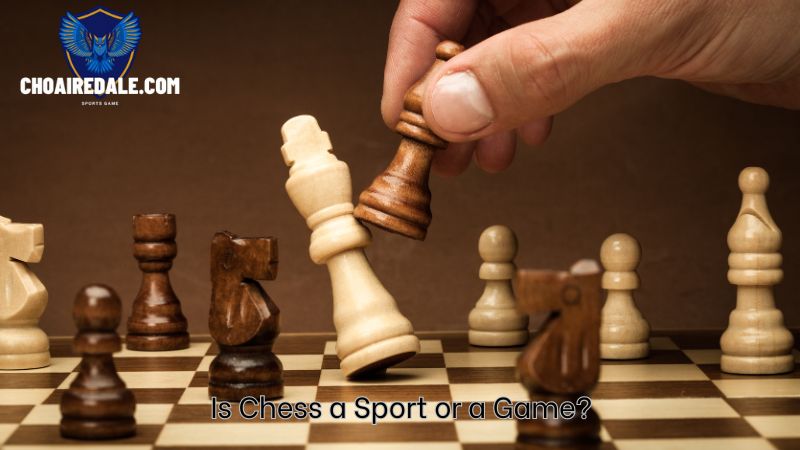The debate surrounding whether chess is a sport or a game has sparked discussions for decades. Chess, a centuries-old activity, combines strategic thinking, mental endurance, and competition in a unique way. However, opinions vary on how it should be classified—should it be considered a sport, like football or basketball, or a game, akin to Monopoly or Scrabble?
In this article, Cho Airedele will delve into the characteristics that define chess, explore the arguments for both classifications, and examine its global status in terms of recognition and popularity. By the end, we hope to clarify this intriguing debate.
Understanding Chess: A Brief Overview
Chess is a board game played between two opponents on a checkered 8×8 board. The goal is to checkmate the opponent’s king, which means putting the king in a position where it cannot escape capture. The game’s rules are straightforward, but mastering chess requires deep strategy, foresight, and mental agility.
With roots tracing back over 1,500 years, chess has evolved from its origins in India to become a globally recognized activity, played by millions worldwide. Whether played casually, in clubs, or at professional tournaments, chess is a test of intellect and mental endurance.
What Defines a Sport?
To determine if chess qualifies as a sport, it’s essential to understand what makes an activity a sport. While definitions vary, most agree that a sport typically includes:
- Physical or Mental Exertion: Participants must engage in activities requiring skill, stamina, or strength.
- Competition: Sports involve competing against others to achieve a goal.
- Rules and Structure: Sports have defined rules governing how they are played.
- Recognition by Sports Organizations: Sports are often recognized and regulated by official bodies like the International Olympic Committee (IOC).
Arguments for Chess as a Sport
1. Mental Exertion and Skill
Chess is a battle of minds. It requires intense focus, critical thinking, and problem-solving abilities. Players must analyze their opponents’ moves, anticipate future scenarios, and strategize under pressure.
While chess may not demand physical exertion like running or jumping, mental endurance is a cornerstone of the sport. World-class chess matches can last several hours, requiring sustained concentration and strategic brilliance.
2. Competitive Nature
Chess tournaments are highly competitive, with players vying for titles, rankings, and prizes. The competitive nature of chess aligns closely with traditional sports. Matches often involve psychological battles, where players try to outwit each other.
The existence of global championships, like the FIDE World Chess Championship, showcases the competitive and organized structure of chess at an international level.
3. Official Recognition
Chess is recognized as a sport by the International Olympic Committee (IOC) and many national sports organizations. FIDE (Fédération Internationale des Échecs), the international governing body for chess, adheres to structures and regulations similar to those of other sports federations.
This official recognition further solidifies chess’s standing as a sport in the eyes of many.
4. Training and Preparation

Is Chess a Sport or a Game?
Professional chess players undergo rigorous training regimes. They study opening theories, analyze games, and work on improving their mental stamina. Just as athletes train their bodies, chess players train their minds.
5. Physical Element in High-Level Play
While chess primarily involves mental skills, physical factors can influence performance in long matches. Players need stamina to sit for hours, maintain focus, and make optimal decisions under stress. Fatigue and poor physical health can impact a player’s performance, suggesting that chess shares some similarities with physical sports.
Arguments for Chess as a Game
1. Lack of Physical Activity
The primary argument against chess being a sport is the lack of physical activity. Traditional sports like soccer, tennis, or swimming involve significant physical effort, whereas chess is played while seated.
Critics argue that chess is more akin to games like poker or bridge, which also require strategy and skill but lack a substantial physical component.
2. Historical Context
Chess has traditionally been referred to as a board game. Its classification as a sport is a relatively modern concept, driven by attempts to professionalize and elevate its status. For centuries, chess has been enjoyed as a recreational activity rather than a physical sport.
3. Comparison to Esports
Esports, or competitive video gaming, shares similarities with chess in terms of competition and mental exertion. However, esports are often categorized as games rather than sports, suggesting that chess might belong in the same category.
Chess in the Global Arena
1. Chess in the Olympics
While chess is recognized by the IOC, it has not been included as an official Olympic event. However, chess has its equivalent of the Olympics: the Chess Olympiad, where nations compete in team-based tournaments.
The inclusion of chess in the Olympics remains a topic of debate, with proponents arguing that its mental demands are on par with traditional sports.
2. Growth of Online Chess
The rise of online platforms like Chess.com and Lichess has revolutionized the game. Online chess has made the sport more accessible, allowing players to compete globally without leaving their homes.
Streaming platforms like Twitch have also contributed to chess’s popularity, with players like Grandmaster Hikaru Nakamura and World Champion Magnus Carlsen drawing millions of viewers.
Cultural and Educational Significance
Chess is not just a competitive activity; it also holds cultural and educational value. It is used in schools to teach critical thinking, problem-solving, and decision-making skills. Many countries have incorporated chess into their educational systems, further blurring the line between game and sport.
Key Differences Between Sports and Games
| Aspect | Sport | Game |
|---|---|---|
| Physical Activity | Typically involves physical exertion | May or may not involve physical effort |
| Competition | Always competitive | Can be competitive or recreational |
| Rules and Organization | Governed by official bodies and rules | Rules may vary or be informal |
| Recognition | Recognized by sports organizations | Not always officially recognized |
Based on these criteria, chess straddles the line between a sport and a game, making it unique in its classification.
What Do Experts Say?
Experts, including players, organizations, and commentators, are divided on the issue. Magnus Carlsen, the reigning World Chess Champion, supports chess as a sport due to its competitive nature and mental demands. Conversely, some argue that chess’s lack of physicality makes it better classified as a game.
Conclusion: Sport or Game?
The question of whether chess is a sport or a game does not have a definitive answer. It depends on how one defines these terms. If sports are solely activities requiring physical exertion, chess is better categorized as a game. However, if sports encompass mental challenges, competition, and organization, chess undoubtedly qualifies as a sport.
What’s indisputable is that chess is a remarkable activity that transcends labels, offering intellectual stimulation, global competition, and cultural significance. Whether you call it a sport or a game, chess remains a beloved pastime and a testament to the power of the human mind.












